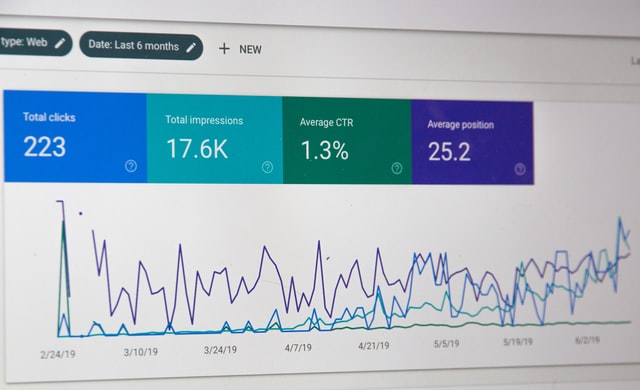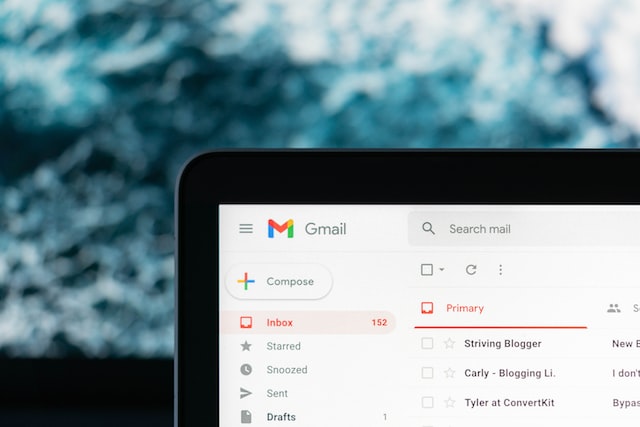Digital marketing is among the most reliable marketing strategies businesses use to reach their target customers today. Businesses that aren’t leveraging the potential of digital marketing are missing out on the opportunity to reach a significant percentage of their target customers. The digital marketing market was over $155 billion by the end of 2021 and is expected to reach $786.2 Billion by 2026, a clear indicator of its impact in the last of years.

Many people may not know that several digital marketing tools/platforms today primarily rely on AI to improve their effectiveness and reliability. Some of the major players in this digital marketing space, including HubSpot, Zoho, and Salesforce, invest heavily in AI to improve the capabilities of their marketing platforms.


If you want to learn more about how digital marketing leverages the power of AI, this article is for you. By the end of this article, you will know how AI is used in digital marketing. We shall also discuss the benefits and the challenges of using AI in marketing.
What is artificial intelligence marketing?


This refers to the form of marketing that leverages the power of AI to achieve specific marketing goals. AI includes technologies such as machine learning, deep learning, computer vision, and natural language processing that are now integrated into many of the popular digital marketing tools.
If you are using any marketing/sales automation software, there are high chances it uses some AI capabilities to execute most of its core functions. Let’s look at some of the ways AI is integrated into digital marketing tools in the next section.
How AI is used in digital marketing tools
1. Personalization


One of AI’s most useful use cases in digital marketing is enabling personalized marketing. With personalized marketing, every prospect receives a marketing message tailored to their needs. Personalization is very common in email marketing. If you open your email inbox, you will most likely find a couple of emails sent from contacts(brands) that seem to have a clue of who you are and your needs.


This level of personalization is made possible by email marketing tools that leverage the power of data and AI to create unique messages for each contact on the email list. A study by InboxInsights shows that nearly 60% of the most successful email marketers think personalization is one of the best ways to increase engagement.
Your business will more likely get positive feedback from prospects if you approach them with personalized marketing messages. Your prospects need to know that you understand their problems before they give you their attention.
2. Automation


AI is also used to automate some of the repetitive marketing tasks, such as responding to common questions that most prospects ask about your brand or products. If chatbots are given enough information, they can answer over 70% of the questions that most of your customers ask. This enhances your response time scores and the reliability of the customer support system.
Automation is also used to generate customer portals, which are personalized websites offering customers a single point of access to relevant company information and self-service options. Ultimately this improves the customer experience and the image of your brand.
Predictive marketing analytics


Artificial intelligence can also help marketing teams with useful predictions that can help them make better operational decisions. For example, several sales/marketing automation tools today have the lead scoring feature, which basically attaches a score to your leads based on their likelihood to purchase a given product.
This data helps sales and marketing teams to focus on leads with the highest score. Focusing on leads with high chances of buying reduces the time you would otherwise spend on time wasters. It also boosts your team’s productivity since they focus more on the most important customers of the business.
Triggered email marketing


This involves sending automated emails to your prospects based on their actions on the site. For example, if someone browses through your products but doesn’t make the purchase, sending an email with a message aimed at helping them make a purchasing decision could entice them into buying one of your products.
Sending triggered emails requires you to integrate your email marketing tool into your website. The good news is that most of the popular email marketing tools have plugins and APIs that can easily be installed on any website. The effectiveness of triggered emails also depends on the amount of data the email marketing tools have about your prospects.
Dynamic pricing


Big retail platforms like Amazon use dynamic pricing algorithms to determine the optimal price of products that will lead to more sales without heavily compromising the margins. These algorithms can determine these prices in real-time by evaluating huge quantities of historical and competitive data.
For instance, Amazon can vary the prices of its products by up to 20% when its competitors offer discounts. This helps it to avoid losing customers to its competitors. Other eCommerce platforms, such as Shopify, also have third-party platforms you can install on your eCommerce website to implement your dynamic pricing strategy.
Targeting the right audience


Platforms such as Google Search and Facebook make billions of dollars in ad revenue thanks to their effective ad targeting that enables businesses to make more conversions. These platforms use AI to determine the most appropriate users to show ads based on their interests. One of the advantages they have is the massive amounts of data at their disposal. This data can be sorted and used to help marketers reach the right audience.


Benefits of AI in marketing
Lowers manpower costs


AI automates several repetitive marketing and sales tasks, drastically lowering the number of people you will need on your marketing team. Chatbots can be deployed 24/7 to take on the role that would be done by several employees. This reduces the costs you would incur to recruit and train employees to do such tasks.
More conversions


The major players in the digital marketing space are investing heavily in AI because it works. Marketers are seeing more conversions, thanks to AI capabilities such as email personalization, lead scoring, market segmentation, and more. With AI tools, businesses can send their marketing message to the right audience, eventually leading to more conversions.
Boosts productivity of marketing teams


AI-powered marketing automation tools offer detailed information about marketing campaigns, enabling marketers to have access to all the data they need to make faster decisions. Ultimately this leads to more productivity in marketing operations since teams don’t have to spend much time analyzing data before making decisions.


Automating tedious tasks is also a huge advantage to marketing teams since it gives them the freedom to focus on more exciting and challenging tasks. Doing challenging and fun tasks keeps marketing teams focused and committed to their work which can significantly boost their productivity.
Enables businesses to connect with better audiences


Platforms like Google and Facebook use artificial intelligence to connect businesses with the most relevant audiences. Having an audience that clearly understands your product and believes in your brand’s vision is an asset that every business needs. AI has made it easier than ever before for businesses to connect with the most relevant customers.


It is also much easier to sell your products if the audience has a good understanding of the products and services you offer. Your sales and marketing teams will put in significantly less effort and time when dealing with customers that already have an idea of the products the business offers.
Better customer service experience for customers


When you automate some of the customer service tasks, your team gets more time to handle other customer service-related issues that require critical thinking and human judgment. This eventually leads to a better experience for customers that need more specific solutions that can only be offered by humans.
Chatbots also provide prompt feedback to customers who ask common questions that don’t require human judgment or any specialized skills to solve. Sometimes all the customer needs is a solution to their problem, so most customers don’t really care if the solution is offered by a real human or a chatbot.
It improves the search experience on websites.


Allowing your customers to search your website is one of the ways you can make it easy to find content and products on your site. With the help of AI, your customer search queries can be autocorrected to improve the accuracy and relevancy of the results they get. Of course, your website’s search may not match Google’s search capabilities, but it can be significantly improved if you integrate AI into it.
Remember, most people are used to using a Google search that autocorrects spellings and offers suggestions if it suspects someone made a mistake in their search queries. Adding some of these capabilities to your website’s search engine can significantly improve the user experience of your website.
PPC ad optimization


Any modern marketing automation tool will always collect data about the performance of your campaigns as the ads run. With the help of AI, this data can be utilized in real-time to optimize the ads and improve performance. For instance, if the AI notices that your ads get more conversions when shown to prospects in a specific age group, it will automatically change the target audience settings in order to show ads to that group of people.


This improves the performance of the ads and also reduces the unit cost you incur to make a sale. The good news is that most of the marketing platforms, including Google and Facebook, are already using these ad optimization algorithms to improve conversions of the marketing campaigns run by businesses.
The drawbacks of AI
Some people prefer to interact with humans and not robots.


Chatbots enable customer service departments to offer prompt feedback to their users, which usually leads to more customer satisfaction if all goes well. However, there is still a significant number of users that don’t like interacting with chatbots. There are people who will immediately close a live chat as soon as they realize they are interacting with a chat bot.
Algorithms can also go wrong.


This is pretty common with ad optimization on Facebook and Google. If you let Google and Facebook choose for you the best audience, you may at times end up paying more if the algorithm fails to target the right people. These algorithms are still far from perfect, so you cannot fully trust them to make every decision for you. That is why it is always best to create your custom audience while running Google and Facebook ads.
AI cannot fully replace humans.


Despite the introduction of AI to take on some of the marketing operations, it still can’t do certain things. A good number of marketing tasks still require human judgment and critical thinking. In such scenarios, humans are the best option to take on such tasks.
AI reliability depends on available data.


Google and Facebook have some of the most accurate ad targeting algorithms mainly because they know a lot about their users. Any AI marketing tool requires access to huge amounts of data to thrive. That means the performance of your AI-powered marketing automation tools will largely depend on how much data you give them.
Privacy concerns


As we shared in the previous point, most AI-powered marking tools require a lot of data to execute their intended tasks. This forces businesses to collect large amounts of data about their customers. Storing a lot of user data comes with the burden of ensuring it is safe from any cyber criminals that could misuse it. Otherwise, the business risks facing the penalties of violating data privacy regulations such as the EU’s General Data Protection Regulation (GDPR)
Final thoughts
There are many ways artificial intelligence has improved the power of digital marketing. It has several benefits, including lowering marketing costs, more conversions, higher customer satisfaction, and more. However, using AI in marketing also comes with some threats/limitations that businesses need to be aware of before adopting tools that use this technology. We also shared some of the most common limitations of AI in marketing in the last section of this article.



